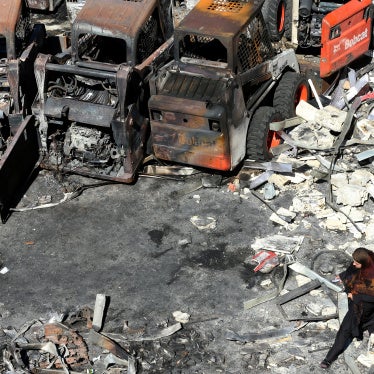Two young men broke into an apartment in May in my native Gaza City and murdered a 79-year-old woman, Thoraya al-Badri, who had recently returned from a pilgrimage in Saudi Arabia. And on June 24, police said, three men killed a 58-year old woman who came home unexpectedly as they robbed her apartment. The cases set off strong reactions in a city known for strong social ties and low rates of violent crimes committed by strangers.
I was shocked to discover that one of the men who apparently confessed to the al-Badri killing is an acquaintance with whom I studied last year at al-Quds Open University. Sensational television footage released by police, apparently aimed at reassuring the public, showed him and an accomplice reenacting the crime. The last time I saw him, last year, he helped me navigate the university bureaucracy to register for a teacher training practicum.
I have been thinking about what could have triggered such inexplicable aggression. People here are worried that deteriorating economic conditions will lead to more instances of such crimes. GDP per capita has shrunk by 26% percent since 1994, and unemployment among university graduates ages 20-29, is 63 percent.
Two days after al-Badri’s murder, Interior Ministry spokesman Iyad Albozon attempted to downplay such crimes, saying that “Gaza has witnessed an unmatched state of stability since 2007,” when Hamas took over control. Seeking to show it is tough on crime, the Hamas government on May 31 executed three men convicted of murder in previous trials. But the criminal justice system run by Hamas is rife with coercion, torture and other violations of due process. Human Rights Watch and Palestinian human rights groups condemned the executions as violating both Palestinian and international law.
I too am worried about Gaza’s fraying social fabric. But carrying out an inherently cruel punishment such as the death penalty, especially in a compromised judicial system, will not make us safer. It simply casts the Hamas government as violators of human rights.









